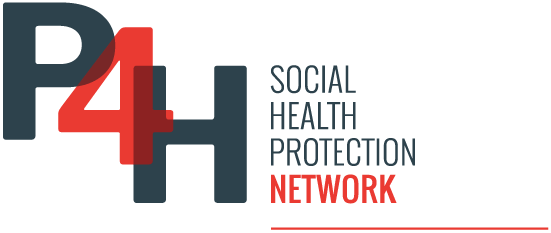The number of documents available on the P4H Network’s digital platform reflects the network’s scope of work. The majority of documents are primary source materials created by country nationals or resources produced by organizations working in social health protection (SHP) and/or health financing (HF).
Health effects of the Brazilian Conditional Cash Transfer programme over 20 years and projections to 2030: a retrospective analysis and modelling study
Conditional cash transfer (CCT) programmes have emerged as powerful tools in addressing poverty and promoting health equity, particularly in low- and middle-income countries. Brazil’s Bolsa Família Program (BFP), launched in 2004, stands as one of the world’s most...
National Health Policy of Saint Vincent and the Grenadines Towards Universal Health
This working draft document was updated following consultations and a group meeting in Saint Vincent in June 2023. All content contained within this draft document is pending review, edits, and approval by the Ministry of Health, Wellness and the Environment and any...
Investing in health for a competitive, secure, and resilient Europe: A strategic call to action
A report by the EU Expert Advisory Group, convened by the Partnership for Health System Sustainability and Resilience (PHSSR), outlines the case for greater strategic investment in health across the European Union. Titled Investing in health for a competitive, secure,...
Attitudes towards the dual health insurance system and inequalities in health care in Germany – results of a population survey
A survey of 2,201 adults in Germany found that while about 77% believe all insured individuals have equal access to necessary medical care, only around 20% think the quality of care is the same between statutory and private insurance holders. Nearly 80% support...
IX and X Andean Forum on Health and Economics – Proceedings
These reports summarize the objective of the Andean Health and Economy Forum in general, as well as the previous meetings. In more detail, it describes the ninth and tenth forums. The 119-page document includes both the speeches and the work at the dialogue tables.
Global Health Watch 7: Mobilizing for health justice – Chapter D3, Financing Pandemic Recovery Prevention Preparedness and Response
A chapter in Global Health Watch 7, titled “Financing Pandemic Recovery, Prevention, Preparedness and Response”, critically examines current global health financing structures through the lens of pandemic cycles. Authored by the People’s Health Movement and Daraja...
Danish primary care: a focus on general practice in the Danish healthcare system
Denmark’s primary healthcare system, centered on general practice, operates within a decentralized structure supported by public funding. Recent reforms focus on shifting care from secondary to primary levels to improve accessibility and coordination. Key challenges...
Forgone Care of doctor’s visits in Germany – Results from three cross-sectional surveys
A study analyzing data from German representative surveys found that 21% of participants reported forgone care in the past year, with higher rates in women and younger adults. The main barriers to accessing care were categorized as systemic, psychological, and...
Trends in the financialisation of outpatient care across OECD countries
This OECD study examines the growing role of financial actors—such as private equity, pension funds, and insurers—in outpatient health care across OECD countries. Drawing on responses from health ministries and system-level data, it highlights increasing concerns...
Estimating Health Expenditure in the Dominican Republic 2007-2021 Using the SHA Approach 2011
Based on data available from the Dominican Republic's health accounts, Magdalena Rathe of Fundación Plenitud analyzes the country's health spending between 2007 and 2021. Using the 2007 and 2018 national income and expenditure surveys, a triangulation was made with...
Tax systems and policy: Crucial for good health and good governance
The policy brief “Tax Systems and Policy: Crucial for Good Health and Good Governance”, published by the United Nations University International Institute for Global Health (UNU-IIGH) in May 2025, reframes taxation as a central pillar of equitable and sustainable...
Reproductive health financing in Uganda: results from the national health account study, 2019–2021
Uganda has made significant strides in its journey to achieve the Sustainable Development Goals (SDGs) by enhancing the health and survival of women and children during pregnancy, childbirth, and adolescence. This effort began in 2013 with the development of the first...
Economic burden and determinants among hospitalized patients with epilepsy in Thailand
This study analyzes the direct medical costs of hospitalized epilepsy patients in Thailand. These costs are assessed from both a societal perspective—which includes hospital expenditures and payments made by health insurance schemes—and a patient perspective, which...
Smoke economics: lessons from tobacco ban for e-cigarette regulation in Bhutan
E-cigarettes and Vaping is a growing public health concern among adolescents in Bhutan. Despite a history of stringent tobacco regulations, the rise in vaping and related health issues indicates a need to update laws and impose higher taxes to discourage their use....
Exploring the facilitators and barriers to achieving universal health coverage in Uganda: a qualitative study of the free healthcare policy
Published in Health Research Policy and Systems by BMC (part of Springer Nature), this qualitative study titled "Exploring the facilitators and barriers to achieving universal health coverage in Uganda: a qualitative study of the free healthcare policy" offers...
